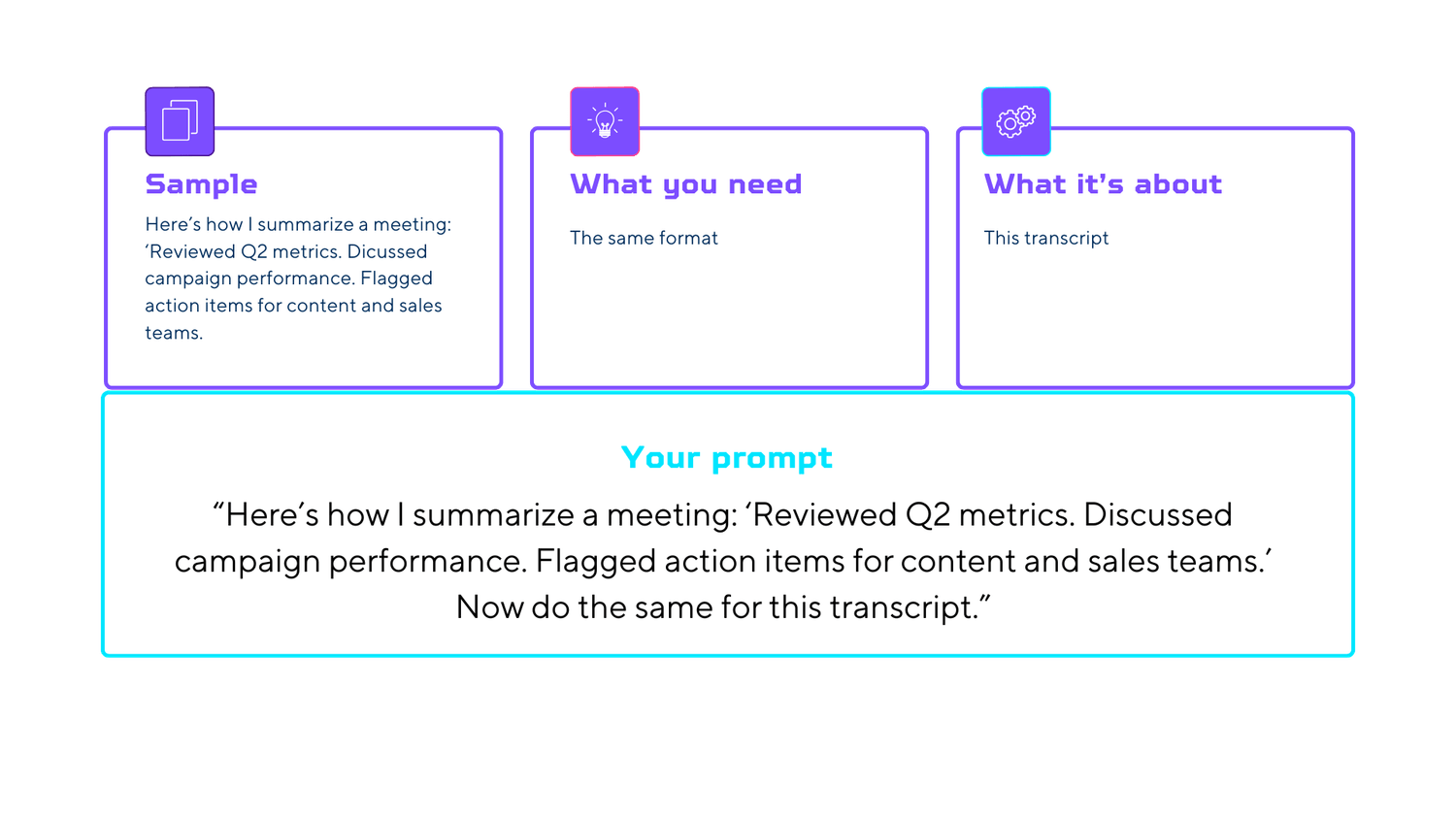
jenn:gosselin
blog
real:world AI for real:work.
Practical tips, prompts, and strategies to help you use AI with clarity, confidence, and purpose.

Learn Prompting - One Shot and Few Shot
One Good Example Can Make AI A Lot More Useful
I previously shared what prompting is and what prompt engineering is.
I then explained how zero-shot prompts work. That’s when you ask the AI to do something without giving it any examples. It’s a great starting point, especially for simple tasks.
But sometimes, you need more than just clear instructions.
Sometimes, you need to show what you mean.
That’s where one-shot and few-shot prompting come in.
What is One-Shot Prompting?
A one-shot prompt gives the AI one example of the kind of answer you want. You’re showing it what a good response looks like, and then asking it to follow that format.
This helps when you want:
A specific tone or voice
A certain structure
More control over the result

“Here’s a short professional bio: ‘Creative director focused on strategy, storytelling, and brand development. Known for connecting big ideas to real-world action.’ Now write a similar one using the same tone and structure for this new team member.”
“Here’s how I summarize a meeting: ‘Reviewed Q2 metrics. Discussed campaign performance. Flagged action items for content and sales teams.’ Now do the same for this transcript.”
“Here’s how I explained machine learning: ‘It’s like teaching a kid to recognize animals by showing them lots of labeled photos.’ Now explain amortization using a similar analogy.”
What is Few-Shot Prompting?
Few-shot prompting works the same way, but includes a few more examples. Usually three to five.
This is useful when:
You want a pattern to be followed
The task is more complex
You want the AI to understand a subtle difference in tone or logic
You give three “About Us” blurbs about small businesses you align with. Then you ask the AI to write one more in the same tone. (Be sure to apply the human touch for your own personal branding. Remember - rewording someone else's work and calling it your own is not acceptable.)
You show a few customer service replies to different situations. Then you provide a new complaint and ask for a response in the same voice.
You offer three rewrites of long paragraphs into headline plus bullet format. Then you give a fourth paragraph and ask for the same treatment.
With a few solid examples, the model starts to recognize the structure and replicate it with more consistency. That's one of the major strengths of AI - seeing patterns.
When to Use One-Shot or Few-Shot Prompting
Use it when:
You want to guide the format or voice
You need consistency across multiple responses
You want more control over the tone or delivery
You’ve already tried a basic prompt and didn’t love the result
When to Avoid One-Shot or Few-Shot Prompting
If the task is quick, simple, or informal, you probably don’t need to add examples, zero-shot prompting will work just fine.
One-shot and few-shot prompting are better for things that require a little finesse or when you want to duplicate a format.
In the next post, I’ll introduce a technique that I use all the time to help me obtain more relevant and accurate results.
subscribe:now
Get my best prompts and strategies sent straight to your inbox.
LCopyright: Jenn Gosselin, LLC. All rights reserved. 2025
Lorem ipsum dolor sit amet, consectetur adipisicing elit. Autem dolore, alias, numquam enim ab voluptate id quam harum ducimus cupiditate similique quisquam et deserunt, recusandae.

